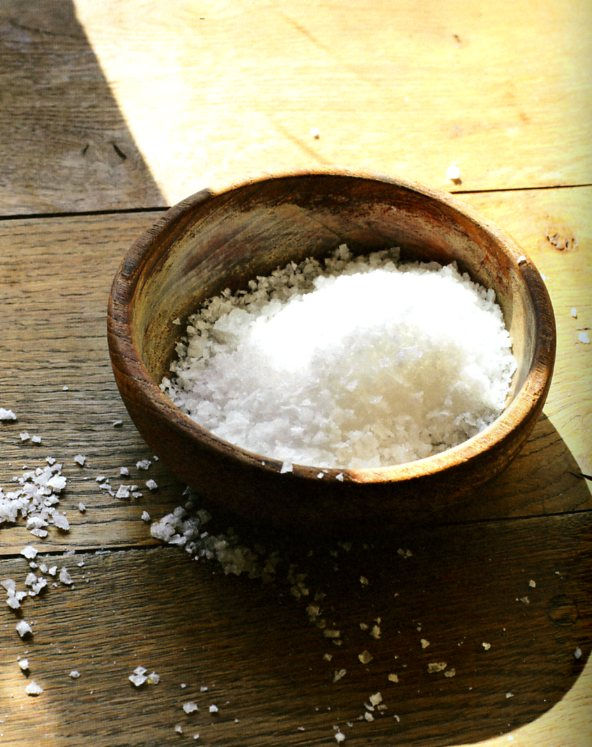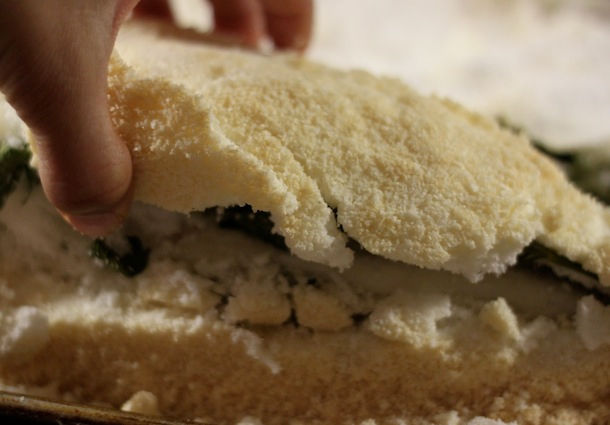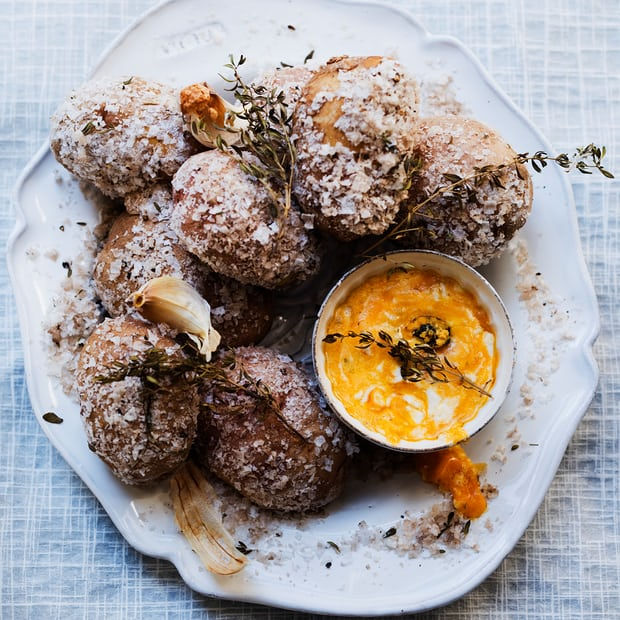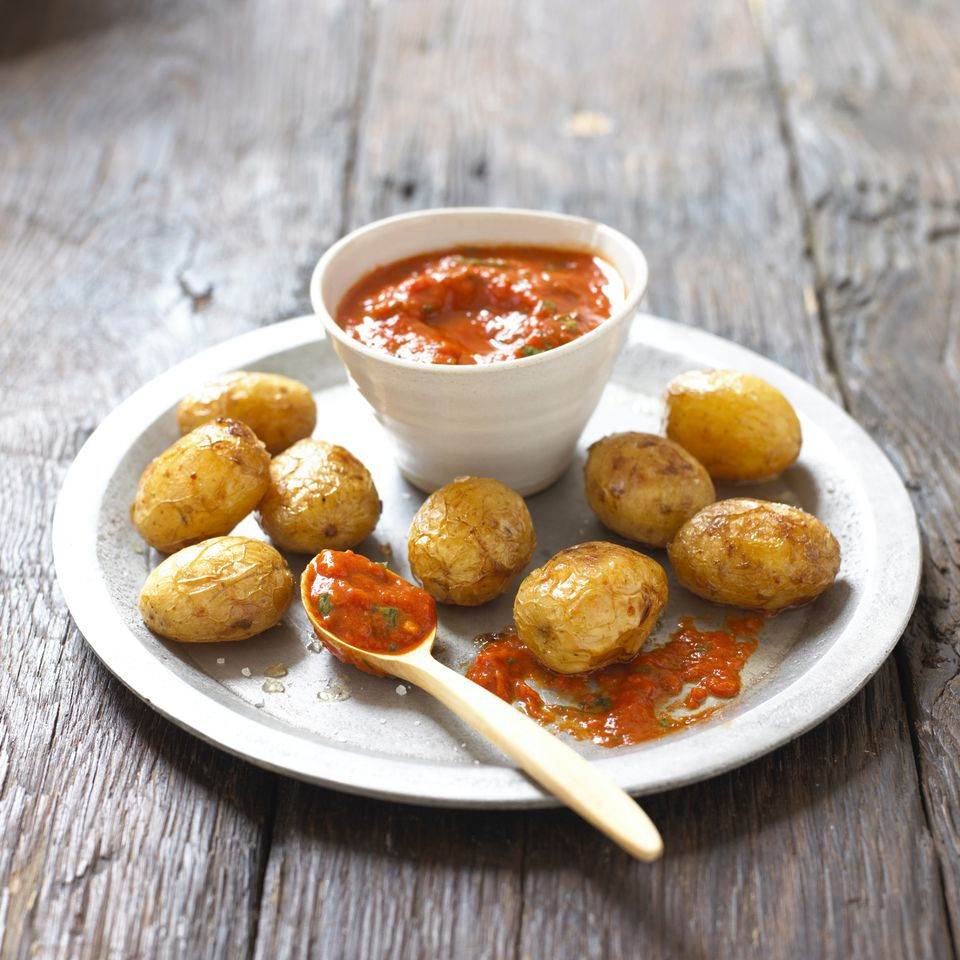Salt as an essential ingredient
- rosemarydearman1
- Jul 3, 2018
- 5 min read

"the only product that changes cuisine"
Ferran Adrià
"It is odd that, in books and treatises on spices, salt is so seldom accorded space in its own right. Though we may have at our command all the spices grown between Trebizond and Malabar and every aromatic harvested from the Lebanon to Mexico, we cannot ignore our need for salt." Elizabeth David
I have almost finished reading my birthday present book on spices - I will give it a post on its own soon - but when I was looking for inspiration for this post on salt and came across Elizabeth David's comments I thought how apt it was. For my spice book has all manner of spices in it including many I have never heard of, but she is right - no salt. I guess it's because it's not really a spice - it's a mineral - as the inimitable Ms. David goes on to say. The quote comes from her fairly learned little book, Spices Salt and Aromatics in the English Kitchen - so maybe she is just justifying her own inclusion of salt in a book on spices. And let's face it plenty of books have been published on salt alone.

There are a couple of other reasons I am returning to the subject of salt, as I promised I would. This time to talk about using it as an ingredient in itself not just a flavour enhancer. The first is that today I removed my salt cured olives from their bed of salt - well the salt was now rather mushy as it had indeed removed much of the liquid from the olives. Leaving them dry and wrinkly looking. They have been rinsed and are now drying on tea towels before receiving their final bath in olive oil. Mine are not quite as large or sumptuous looking as the ones in the photo but they are not far off and to my unsophisticated olive palate they taste alright. I'm quite pleased.
This is the whole point of curing things in salt - it draws out the liquid - you can read about the science of it all on the net - and when you draw out the liquid you draw out the stuff that harbours the bugs. That was my understanding anyway. Mostly you then discard the salt - as in the aforementioned olives and also in the wonderful Scandinavian gravlax. And the salt is sometimes mixed with sugar and various herbs and spices to enhance the flavour. Not my olives though.
But sometimes the liquid that emerges adds to the taste as well - as in the amazing transformation of lemons to preserved lemons. When I am lucky enough to receive free lemons from friends with overladen lemon trees I preserve lemons (and make marmalade). For they need to be unwaxed ones. The way I do it is to cut the lemons into quarters lengthways. Pack them in a jar with a plastic lid. Fill with rock salt interspersed with the odd bay leaf and bit of cinnamon and cover the whole lot with lemon juice. Then hide them away in a dark cupboard for a few weeks. And hey presto. The smell when you open the jar is amazing. You only use the peel - just rinse your wedge and cut off the flesh and the pith. I have seen recipes that top the whole thing with boiling water but I don't think I have ever done this. So - yes - you do rinse off the liquid, but the liquid has merged with the lemon peel. And you can use different spices to add flavour. Or none at all.
Salt has amazing properties. It enhances flavours but also tones down bitterness. It can preserve an ingredient almost indefinitely, or season it in the lightest way, so it can be served at its peak. Salt has its place in every culinary genre, from baking to cocktail-shaking. And, when it is absent, you know that it is needed." Steven Lamb - River Cottage A-Z
Another interesting use of salt in a sort of brine was from the River Cottage Book. It sounds intriguing (Tea brined chicken) and I mean to try it some time. You can find the recipe here. And the net offers a few very similar recipes. Basically you put the chicken in a tea and lemon flavoured brine overnight and then roast as usual.
In line with Elizabeth David's comments about salt not being included in books on spices, it is also pretty difficult to find recipes in your library of cookery books. I know I have several recipes somewhere for salt-crusted things but it's a bit hard to find them in the indexes, unless you know roughly which books you are looking at and also what animal or vegetable you are crusting. So I sort of gave up. I'm pretty sure Robert Carrier has something somewhere though.
But I won't leave this post without tackling the question of food that has been encased in salt and roasted. Here are a few opposing views:
"Cooking a whole fish in a salt crust is a fine idea—if you don't own any cooking vessels and live on the edge of a salt marsh. Otherwise, it's sort of a gimmick. " Chris Hall - Bon Appétit
"This fish was dead set DELICIOUS. Sure, a few steps with all the sides that go with it, but worth it for the tastiest, moistest, delicious tasting fish I think I have ever had come out of my kitchen. Not to mention the fun and theatre that comes with baking things in a salt crust." Baby Mac

"When the dish comes out of the oven, you crack open the hardened, golden salt shell to unearth a moist, evenly cooked and fragrant buried treasure." Serious Eats
"I have not tried the recipe because I do not willingly buy battery birds. Perhaps money spent on a free-range properly fed chicken would save the cost of the salt." Elizabeth David
I must admit I have never tried this technique either - mostly because of the large quantities of salt required - though I did read somewhere that it should be just plain old cooking salt not rock salt. And the trick is to mix the salt with egg whites - leaving you with lots of egg yolks. But I guess that's not the usual way around so you can make those rich sauces and cakes and things that you never have because you didn't know what to do with all the egg whites. Next time I come across one of those that use lots of egg yolks, maybe I should consider encasing a chicken or a fish in salt.

Chicken and fish were the usual things treated in this way, although it seems there is a traditional Welsh recipe with duck. But I was tempted by a couple of recipes with potatoes. One from Nigel Slater - pictured at right and one from the River Cottage A-Z book, the recipe for which you can find here.

The picture is not from the book but seems to be the same dish - Papas Arrugadas.
And finally, still with the River Cottage folk - their one recipe that they chose to illustrate the wonders of salt was a salted caramel sauce. There are tons of recipes for that on the net. But I have to say that I have yet to try it.
It's a lovely book. And I'm sure I shall be using it much more - it's like an encyclopedia really.
"Salt - our bodies would cease to function without it and we instinctively hunger for it. ... and when we found that it could not just flavour but preserve food too, it opened up new worlds to us. Have salt, will travel." Simon Lamb - River Cottage A-Z












Comments